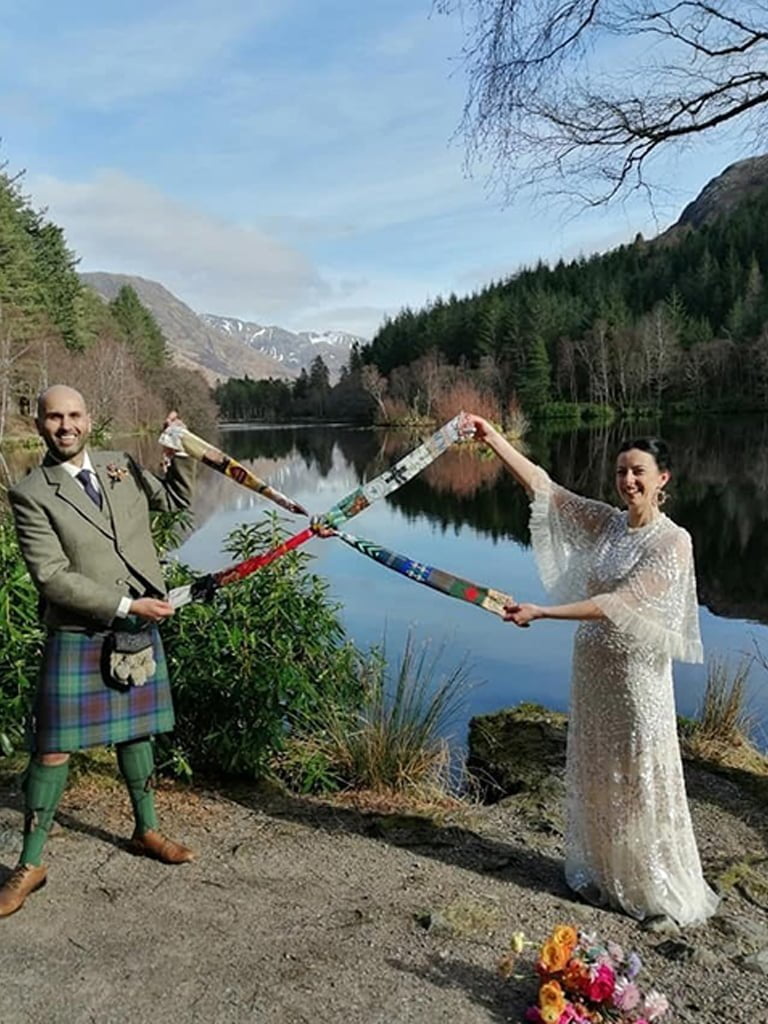
Expert advice – what is so special about a humanist wedding?
Advertising feature
Humanist wedding ceremonies are now one of the most popular forms of ceremony in Scotland, but what exactly does having a humanist ceremony involve?
With couples favouring them there must be something special about them.
Madeleine Clark, ceremonies manager at Humanist Society Scotland explains all you need to know below…
What is humanism?
In a nutshell, Humanism is a rational and ethical belief system which puts people at its heart.
It is focused on the principles of respect, tolerance, kindness and compassion for one other – and the planet we share.
So, why are Humanist Society Scotland the experts?
Well, we are the national Humanist charity, with campaigns that support our ethical goals to try to create a fairer society.
We have a large community of celebrants, who conduct more ceremonies in Scotland than any other belief body, and are the only ones to have permanent authorisation to conduct legal Humanist ceremonies.
Our celebrants share advice and support which, combined with professional training, means each celebrant has a wealth of knowledge to make sure your ceremony is perfect!

What is a humanist ceremony all about?
Humanist wedding ceremonies make sure you, the couple, are at the centre of the ceremony.
This makes Humanist ceremonies incredibly personal and unique – you are involved in the writing of it, so it is a true reflection of what makes your relationship so special.

Don’t worry if you are nervous about being the centre of attention!
Just because the ceremony is all about you, it doesn’t mean you have to do any public speaking – unless you want to!
Your celebrant can do the talking for you (beyond a short legal bit) – but they make sure the words said are just right for you.
Why are humanist ceremonies so personal?
Because they are all about you!
A Humanist ceremony will usually include the story of how you met, how your own love story has developed, and why you have decided to get married.
It might talk about why your guests are important to you – or why you have decided to have a tiny ceremony with just each other and your witnesses.
If you have children, you might include family vows or promises.

Couples often choose to include readings or music that mean a lot to them – or ask friends or family to choose something that reflects how they see you, and your story.
You might share three things you love about each other with your celebrant, so they can surprise you on the day – or you might choose to write special promises to each other to accompany the legal declarations.
Humanist Society Scotland do all they can to make sure that your celebrant is a good fit for you too.
If you have a special request let us know!
We have worked with couples to make sure that different languages can be included, celebrants have skied to weddings, climbed mountains, crossed seas, (and even bungee jumped!).
We will do everything in our power to make sure you have a ceremony that is just right for you.

We asked some of our celebrants how they make sure the ceremonies they write really are perfect for each couple.
They told us the key is getting to know a couple, and really understanding what makes them tick before putting pen to paper.
Getting symbolic
One way of making a ceremony personal is to include a meaningful symbolic gesture.
For example, if you have a favourite place, you might want to talk to your celebrant about including an Oathing Stone.
You can choose a stone from ‘your spot’ to say your vows on – acting as a reminder of your past, tied to the promises you are making now and for your future together.
It is a lasting memento and every time you visit your special place, you will be reminded of your ceremony.

Humanist Society Scotland celebrants also encourage couples to be creative and invent their own gestures.
One couple met working in a bar, so they wanted to create their own wedding cocktail.
During the ceremony they poured each element of the drink, and the celebrant explained how they represented the people who were important to the couple.
They tied this into a traditional gesture, as a nod to their heritage, by drinking it from a quaich – creating their own unique twist.
One celebrant told us about doing a handfasting with Tartan and Kente cloth, representing the couple’s Scottish and Ghanaian roots.
Pieces from family wedding dresses, grandparents’ ties, football scarves and so much more have all made their way into a handfasting ceremony… if you can tie a knot in it, you can use it!

Look to your family, your heritage, your hobbies, the important times you have spent together.
Is there something you want to include?
Even if you don’t know exactly how that might work – the great thing about a humanist ceremony is that you can speak with your celebrant and together get creative about ways to reflect your passions in your ceremony.
If you think this sounds like the kind of ceremony for you, our Humanist Society Scotland celebrants would love to hear from you and talk through the ideas you may have for your ceremony.
You can read more about all the celebrants on the Humanist Society Scotland website
Find out more on our suppliers page here

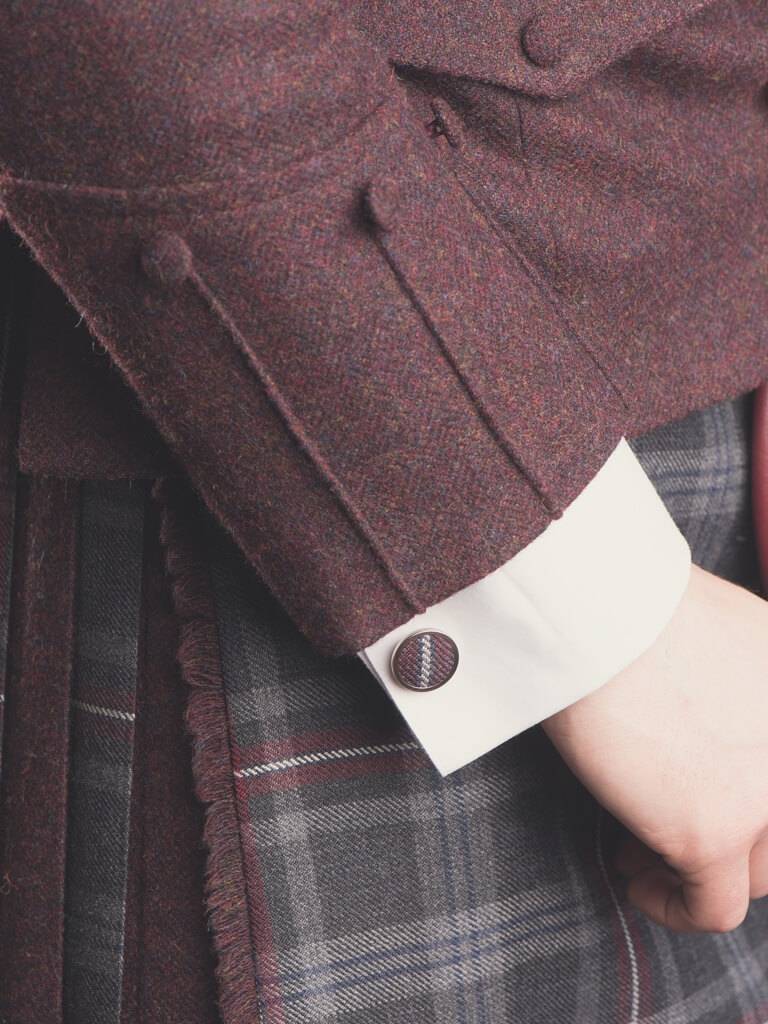
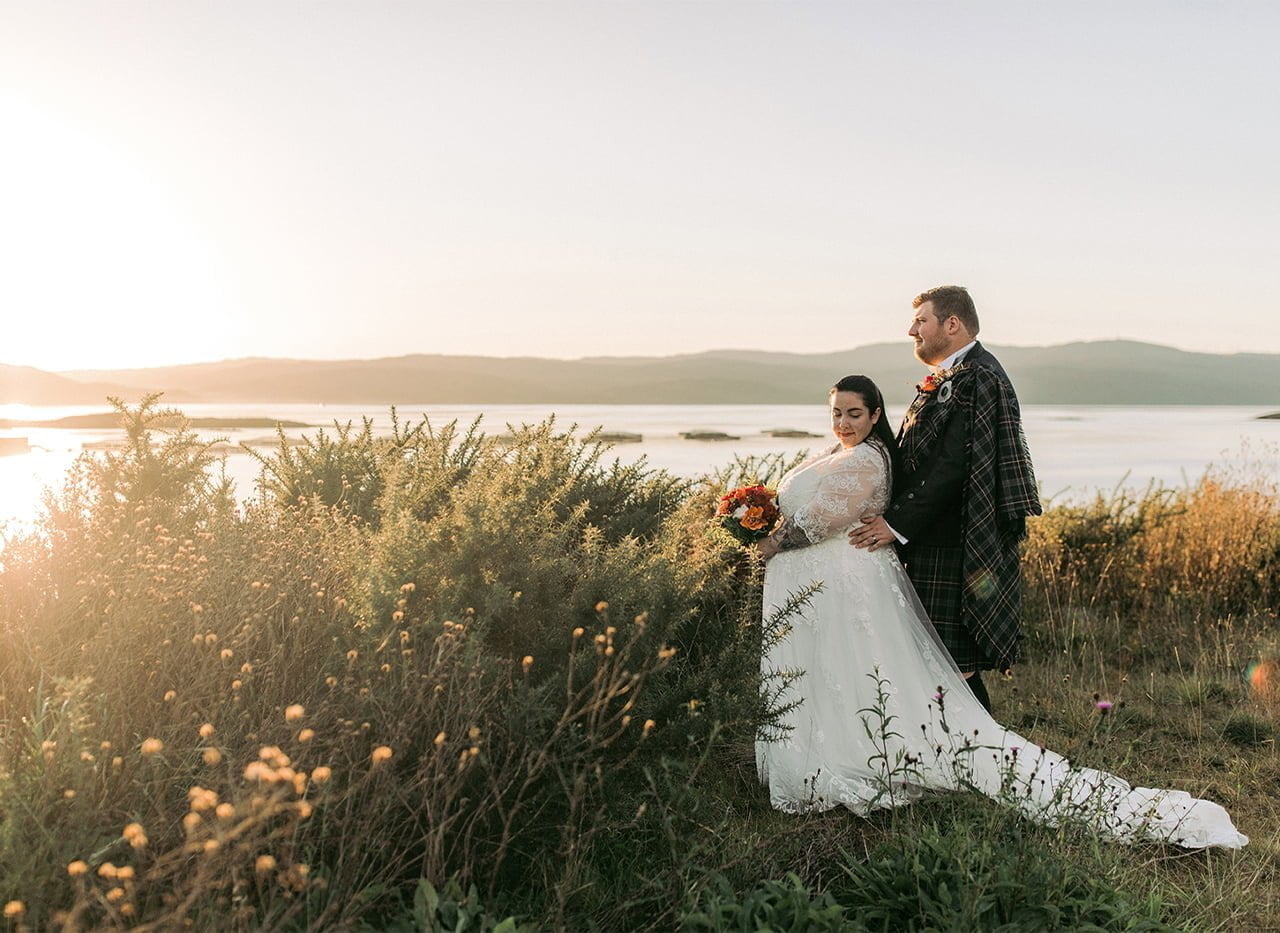
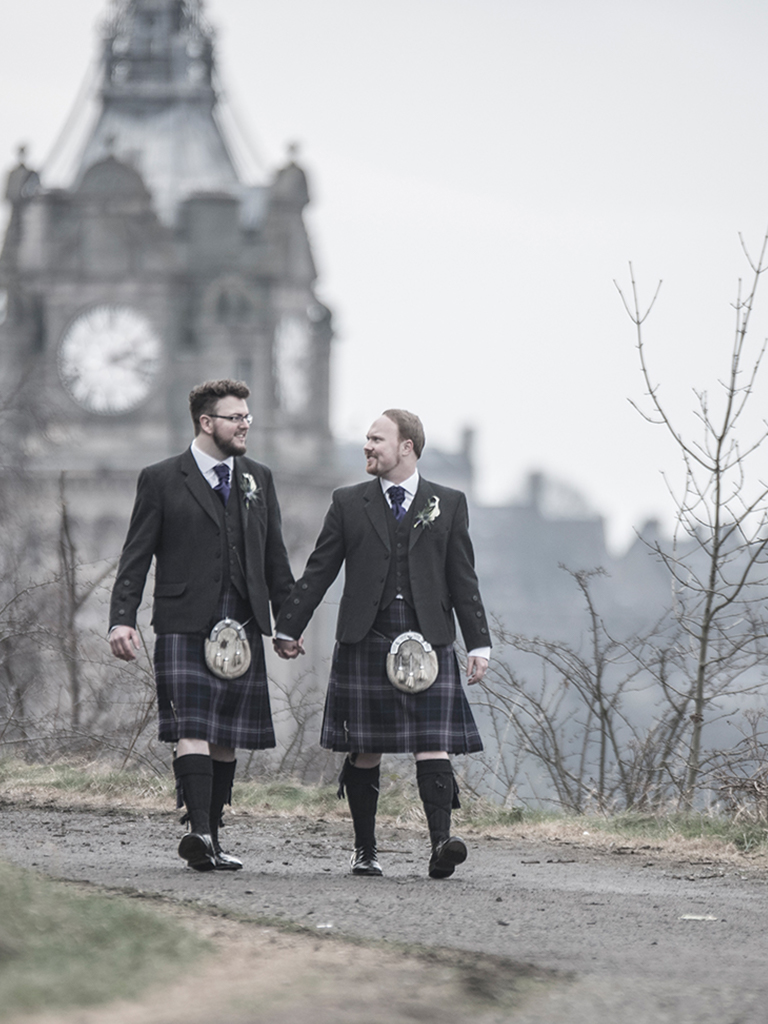
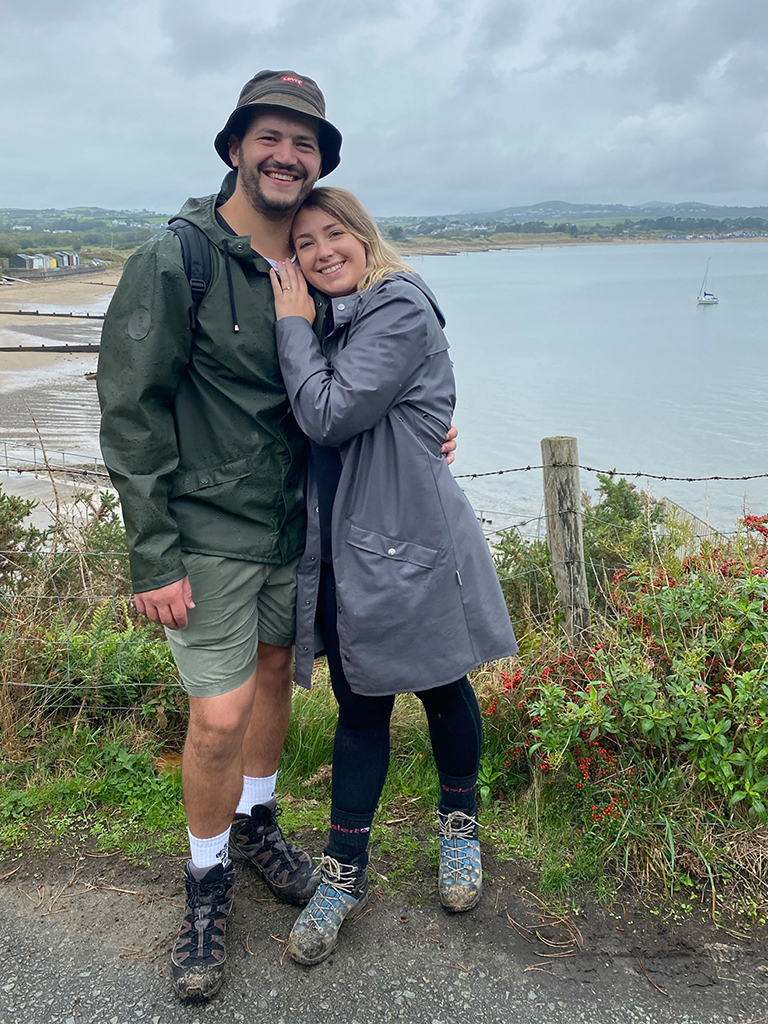
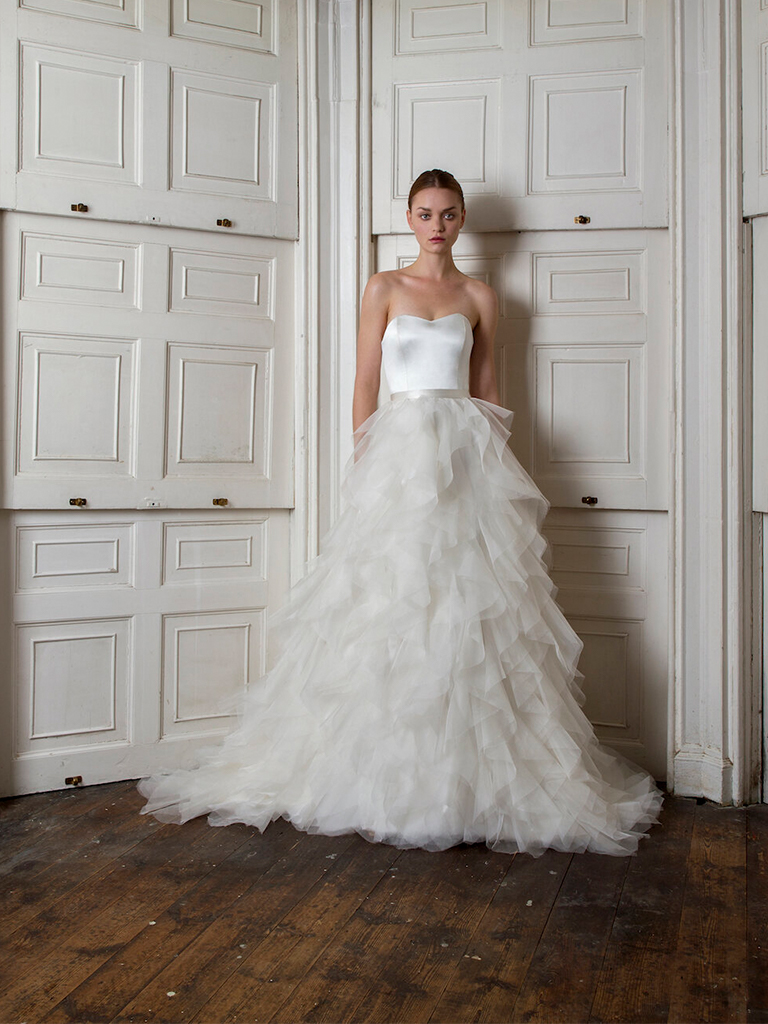
Leave a Reply